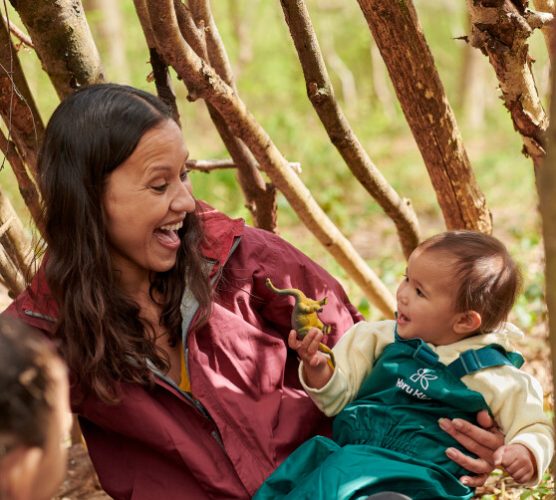Forest School is a child-led educational approach that nurtures an appreciation for the natural world and helps children develop essential life skills. With over 8,000 active Forest Schools today in the UK alone, and more than 9,000 globally, Forest Schools is a hugely popular movement in early education. So, what exactly is Forest Schools, what are the benefits, and how can you incorporate it into everyday life?
What are Forest Schools?
Forest Schools are a natural way of teaching young children. Rather than focusing on standardised assessment and finishing off work with pencil and paper, youngsters learn how to look after themselves by exploring the world around them.
The aim of Forest School is to get children out into nature, encouraging them to learn through a variety of experiences that put them in touch with the natural world. It’s a type of early education that lets children explore and learn in a natural environment without adults ‘teaching’ them.

Forest Schools has its roots in Scandinavia, where the ‘friluftsliv’ (“free air life”) culture is a core part of education. This way of thinking made its way to the UK in the 1990s, and has since grown in popularity, to the point where most early years educators try to incorporate some of its teachings into their daily work.
- Forest Schools is based around six key principles:
Forest Schools should be a long-term commitment to regular and frequent visits, rather than occasional workshops. - Forest Schools should take place in a natural environment – ideally woodland – to foster a connection between the learner and nature.
- Forest Schools fosters the development of independent learners who are confident, resilient and creative.
- Forest School offers learners a chance to take risks in a safe, supportive environment.
- Forest School is run by qualified professionals who are dedicated to the development of their craft.
- Forest School promotes a culture of learning and development through the use of learner-centred processes.
Why is it important for children’s development?
In addition to the more obvious physical benefits of getting outside, exploring nature and the outdoors can help boost youngsters’ immune systems, foster independence, and plays a vital role in children’s cognitive, social, emotional and physical development.
Sir Ken Robinson, leading expert in human development, and chair of the Dirt is Good Child Development Advisory Board, has said: “academic research shows that active play is the natural and primary way that children learn. It is essential to their healthy growth and progress, particularly during periods of rapid brain development. Yet, too often play is disregarded as frivolous and pointless.”
Forest Schools is a core part of Koru Kids’ ethos. Through our extensive training, we teach our nannies and Early Educators what the natural world can teach children, and encourage them to get children outdoors whenever possible. Our Home Nurseries are especially committed to this, and get outdoors every single day, no matter what the weather, to make the most of the natural world. Every single one of our Home Nurseries has access to a local green space, whether it’s a local park, woodland, or back garden.

How to incorporate it into everyday life
Christina Dee, founder of the Forest Schools Learning Initiative, has shared valuable guidance on how to set up a successful Forest School: “The ethos of forest schools is child-led learning. It helps children’s self-esteem, confidence and independence. We do that by making sure that everything we do at forest school is a small, achievable task,” she says.
That being said, the best way to incorporate Forest Schools into everyday life is to just get outdoors! Let youngsters explore the world around them, and let them figure out for themselves what they are interested in. Everyone who works in childcare knows that even the best laid plans never quite go to plan when kids are involved – embrace that! Let the children take the lead, and do what interests them – by doing this, children build problem-solving skills, independence, and resilience.
This might mean that you end up with some very muddy, soggy children by the end of the day, and that’s okay! Forest Schools means embracing the outdoors in every sense of the word, and letting children find their own way.



